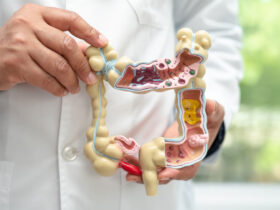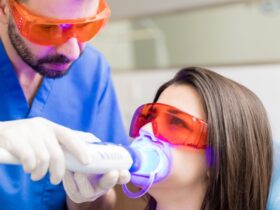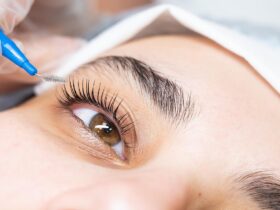You can consult a doctor to treat erectile dysfunction (ED). ED is a common condition that affects a large number of men. Treatment plans vary depending on the underlying cause and severity of the condition. Your doctor will explain the risks and benefits of any potential treatments. In many cases, lifestyle changes can help reverse ED symptoms.
One of the most common causes of ED is arteriosclerosis, which affects the arteries and veins in the penis. It is a condition that occurs most commonly in older men and is associated with high blood pressure and high cholesterol levels. Cigarette smoking and high blood pressure are also known to cause ED.
Cognitive behavioral therapy is a treatment that may be beneficial. Based on the principle that our thoughts are partly responsible for our feelings, cognitive behavioral therapy helps people realize that the underlying cause of their problem is their own mindset. The treatment process may involve adopting a more realistic mindset and changing the thoughts that make them feel anxious or apprehensive about a situation.
Penile prosthesis is another effective treatment for men suffering from ED. This procedure is slightly invasive but has positive results. Penile prosthesis options include semi-rigid and inflatable models. The inflatable model is preferred by most men because of its more natural appearance. The procedure itself involves general anesthesia and requires an incision in the penis-scrotum junction.
Medications for erectile dysfunction include oral medications and injections. A prescription drug called a PDE-5 inhibitor is often used to treat erectile dysfunction. It works by inhibiting the enzyme that causes an erectile response to normal sexual stimulation. Most men with ED can be treated with this drug.
Other causes of erectile dysfunction include radiation treatment for prostate or bladder cancer, and aging. The condition generally affects older men. In some cases, aging is a symptom of a more severe condition, like diabetes. For most people, however, erectile dysfunction is a sign of a more mature and balanced lifestyle.
Erectile dysfunction is a common problem, affecting as many as 30 million men in the U.S. This condition is not natural and requires the consultation of a doctor to determine the cause. It may be an indicator of underlying medical conditions such as clogged blood vessels, diabetes, and nerve damage.
In some cases, a prescription for penile injection therapy can help patients regain a reliable erection. However, this treatment is not always safe and should only be used in a clinic or by a healthcare provider with adequate training. It may cause scarring and infection in the penile area and can lead to priapism.
Before undergoing treatment, your doctor will do a physical examination to determine the cause of ED. Blood tests will be performed to check for underlying conditions such as diabetes and low testosterone. Other tests may be necessary to determine the cause of ED. Depending on the underlying cause, treatment will include medications and talk therapy.
Erectile Dysfunction (ED) is a condition that causes the inability to achieve and maintain an erection. It can occur due to several reasons, including age, health conditions, certain medications, alcohol, and even relationship difficulties. If you are experiencing these symptoms, talk to a medical professional such as the doctors at www.premiermensmedical.com to learn more about ED treatment options.
Your doctor will prescribe a treatment plan for ED based on the type of ED you are experiencing. Treatment plans may include oral medications or injections. Your doctor will discuss the risks and benefits of each option. If you find that your ED symptoms are not improving with non-surgical treatments, your doctor may recommend that you consult with a psychologist to help you deal with this psychological issue.
Another option for men suffering from ED is a penile prosthesis. While this is more invasive than other methods, it can be extremely effective. Penile prostheses come in two types: inflatable and semirigid. Inflatable versions are preferred by most men since they allow for a more natural appearance. The procedure for inserting a penile prosthesis requires general anesthesia. The penile prosthesis is placed inside the erectile tissue.
Erectile dysfunction is a complex disorder that affects the quality of life of both men and women. Patients with erectile dysfunction frequently exhibit depression-related symptoms, which can impair their sexual life. It can also impact the quality of life for couples. This Primer reviews various aspects of the disease, including recent research, new treatment targets, and the latest advances in regenerative medicine.
Men who are experiencing ED should also be aware of their lifestyles. They should try to stop thinking that their sexual function depends on having a rigid erection. They must also take the time to evaluate their sexual relationships to determine if they are still able to have sexual intercourse with their partner. Many mutually satisfying relationships can be maintained even with ED.
Alternative methods for treating ED include prescription drugs and injection therapy. The most common drug used for this treatment is prostaglandin E1. This drug alone may not be enough to treat erectile failure, but in combination with other drugs, it can help increase blood flow in the penis. These drugs are referred to as “bimix” and are often more effective than single drugs.
Another treatment option is biofeedback. A doctor may use biofeedback to guide the patient through the treatment process. This will give him a better understanding of what’s causing the problem. Biofeedback and Kegel exercises can help the sufferer improve sexual function. They may also be able to detect any underlying medical conditions causing ED.
Oral medications are also available. They can improve the blood flow to the penis, which may lead to spontaneous erections. If taken properly, oral medications can have minimal side effects. However, patients with serious vascular conditions or other medical problems may find them ineffective.
Visit “Premier Men’s Medical Center
2145 Metrocenter Blvd. Suite 120 Orlando, FL 32835
888-994-4667
Monday-Friday 9am-6pm
https://premiermensmedical.com







